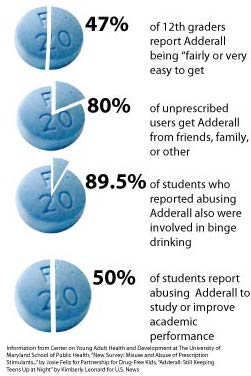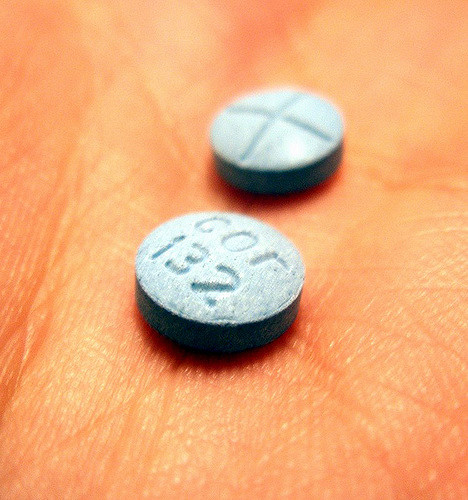OPINION: Adderall intake proves detrimental to student health, not a grade-booster
Surveys show accessibility of adderall pills for teenagers
November 7, 2016
Adults, parents, and officers all told teenagers to say no to drugs. We were taught to turn down offers of marijuana and alcohol, but never were we told that an easy-to-obtain prescription drug called Adderall could be just as dangerous.
Adderall has been around for about 80 years, but now somehow if you use it when it is not prescribed to you as a doctor, you get labeled as “trendy.”
However, it is the opposite of “cool.” This drug is causing serious health problems in young adults, and we are becoming reliant on it as a generation.
According to the 2015 Monitoring the Future survey, about 7.5 percent of high school seniors report using the drug, which may seem like a low percentage, but that would be more than 27 students in the senior class at Algonquin alone abusing the drug for non-medical reasons.
Adderall is an amphetamine that has a similar chemical makeup to ecstasy. The drug, meant for patients with Attention Deficit Hyperactivity Disorder (ADHD) and Attention Deficit Disorder (ADD), taps into specific parts of the brain that control impulses and hyperactivity. As midterms or finals approach, you most likely can find Adderall from somebody.

The use of the highly addictive ADHD prescription drug that costs $2-$5 a pill has recently been on the rise throughout high schools and colleges around the country. Adderall has been labeled the “competition drug” by professionals who have seen the rise in demand first hand from increased pressures to perform well in school.
Readily available, the drug has been passed in ample amounts around Algonquin during stressful exam times and study crunching hours. According to the National Survey of Children’s Health 2014, one in every 11 children is diagnosed with ADHD by the time they are 17. This means there have been more students with Adderall hanging around in their backpack than ever before.
And if, according to the National Institute on Drug Abuse, one in five college students admits to using Adderall without an ADHD diagnosis, it may be even harder to turn it down in the future if everyone around you is using it.
When taking the drug for studying, partying, or weight loss, few people realize the health hazards associated with Adderall.
Recently, the amount of emergency rooms visits by non-medical use of this drug has doubled due to overdoses and Adderall-related binge drinking issues. Abuse of this drug results in sleep deprivation that leads to mood swings, and eventually can spiral into depression. For us teenagers, it’s hard enough getting a healthy amount of sleep every night, and this drug certainly isn’t helping in the battle versus teenage insomnia.
A common misconception is that Adderall helps you concentrate to retain more information, but after taking the drug, the stimulating effects wear off and leave your brain burnt out. You are left unable to process information in a normal way. Not enough people are aware of this, and users are overlooking the true effects of this schedule two drug that is in the classification as methamphetamine and oxycodone.
Instead of taking the time to sit down and study normally, teenagers are relying heavily on Adderall to help them retain more information; if only they knew that one of the many effects of abusing Adderall is a lower cumulative GPA.
If you’re thinking of taking Adderall to study for your next big test, and you are not specifically prescribed Adderall, think twice.
If you or someone you know may be suffering or showing signs of Adderall addiction, talk to a trusted adult or family member, and seek help at a local rehab hospital to avoid long term detrimental effects.
Neither taking the drug recreationally, or for a few extra grade points, is worth risking a life-long battle of addiction and overdoses of prescription drugs that can come from just taking Adderall once.









